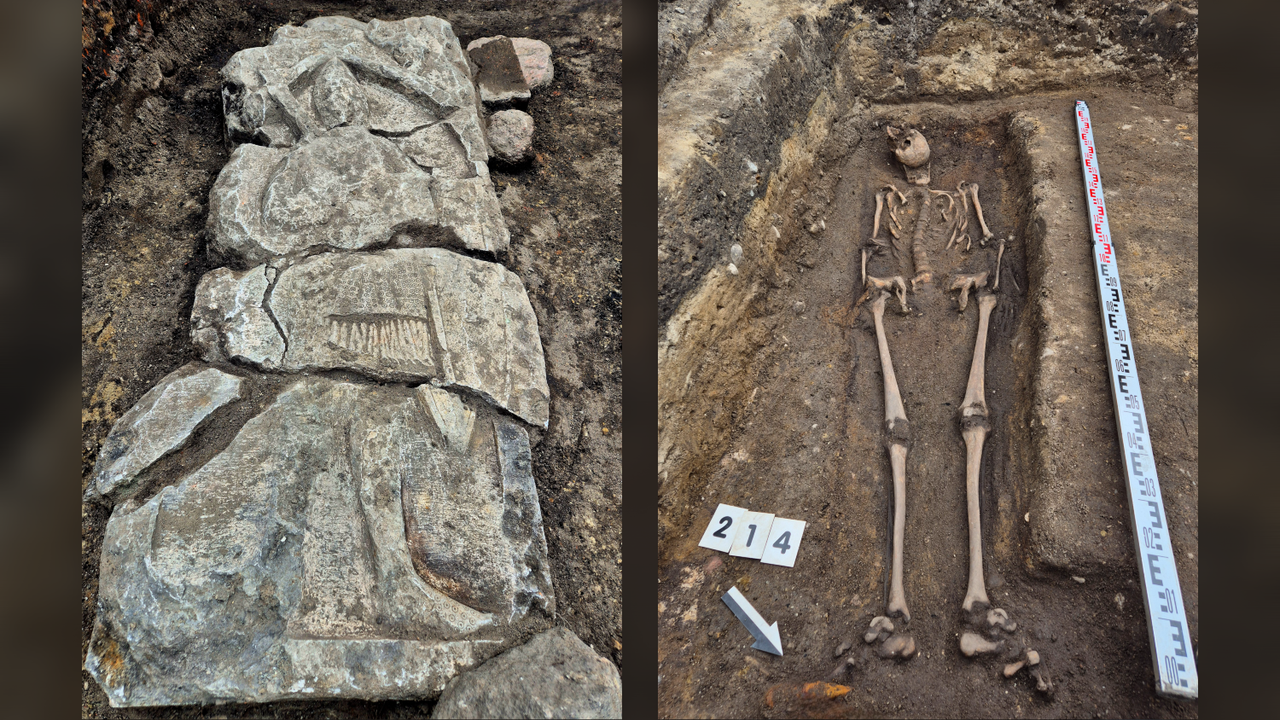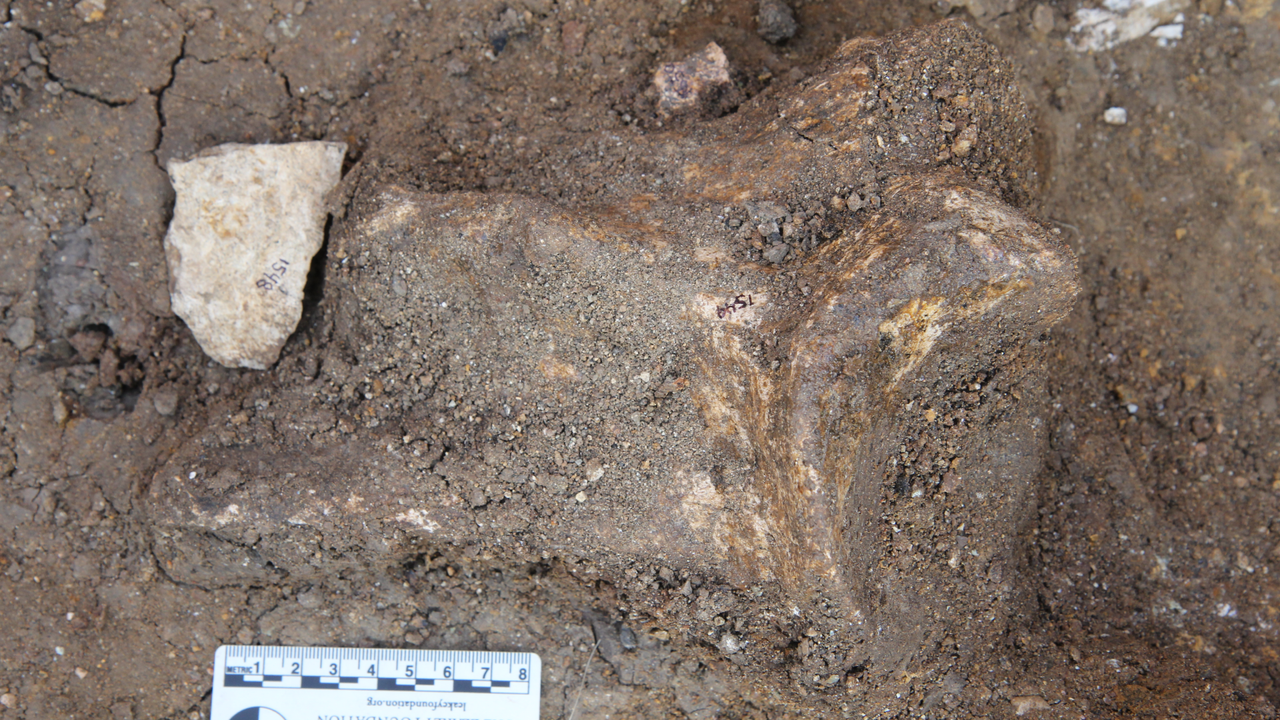Now Reading: Medieval Knight’s Stone Tomb Discovered Beneath Polish Ice Cream Shop
-
01
Medieval Knight’s Stone Tomb Discovered Beneath Polish Ice Cream Shop
Medieval Knight’s Stone Tomb Discovered Beneath Polish Ice Cream Shop

Quick Summary
- Finding: Archaeologists discovered a 13th-century limestone tomb slab depicting a knight in full chainmail armor underneath an ice cream shop in Gdańsk, Poland.
- Details: The carving on the tomb slab is rare for medieval Poland as only a few featured images of the deceased.It measures 59 inches (150 centimeters) and was likely imported from Gotland,Sweden.
- Skeleton Found: Beneath the slab was a well-preserved male skeleton,speculated to belong to someone of high social rank,possibly a knight or military figure. No grave goods were found accompanying the burial.
- Preservation Efforts: Researchers are scanning the tombstone using high-resolution 3D technology and analyzing skeletal remains chemically and genetically to reconstruct historical details such as facial features and life conditions.
- Meaning: The discovery provides valuable insight into gdańsk’s formative years and its medieval elite but no evidence directly links the knight to specific orders like Teutonic Knights.
Indian Opinion Analysis
This archaeological find sheds light on medieval European society’s hierarchical structures while emphasizing global cultural exchange-such as importing materials from Sweden for elite burials.For India, this discovery serves as inspiration for exploring uncharted layers of its historical urban centers like Delhi or Chennai that may yield similar insights into India’s societal evolution during comparable periods in history.
The emphasis on advanced technologies like 3D imaging for artifact preservation raises questions about whether Indian heritage sites are integrating cutting-edge methodologies effectively enough when documenting their own rich medieval past-a key area where India could further invest resources given its vast historical wealth spanning centuries.
—


























